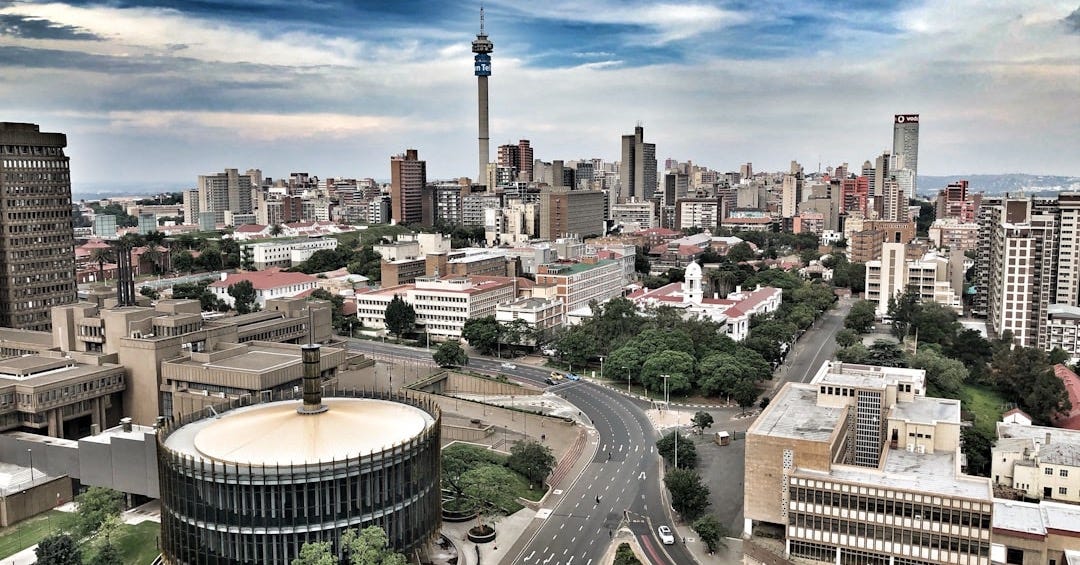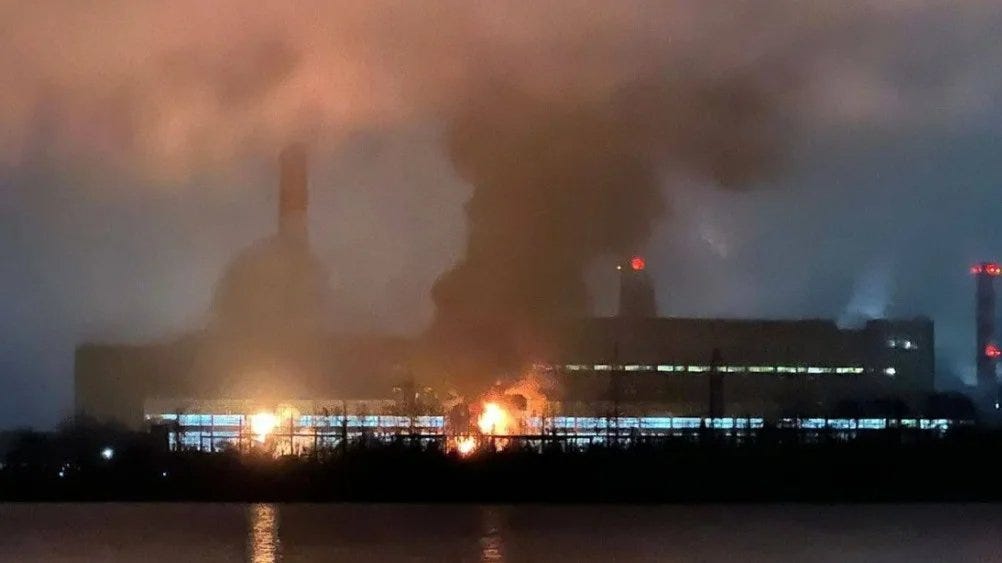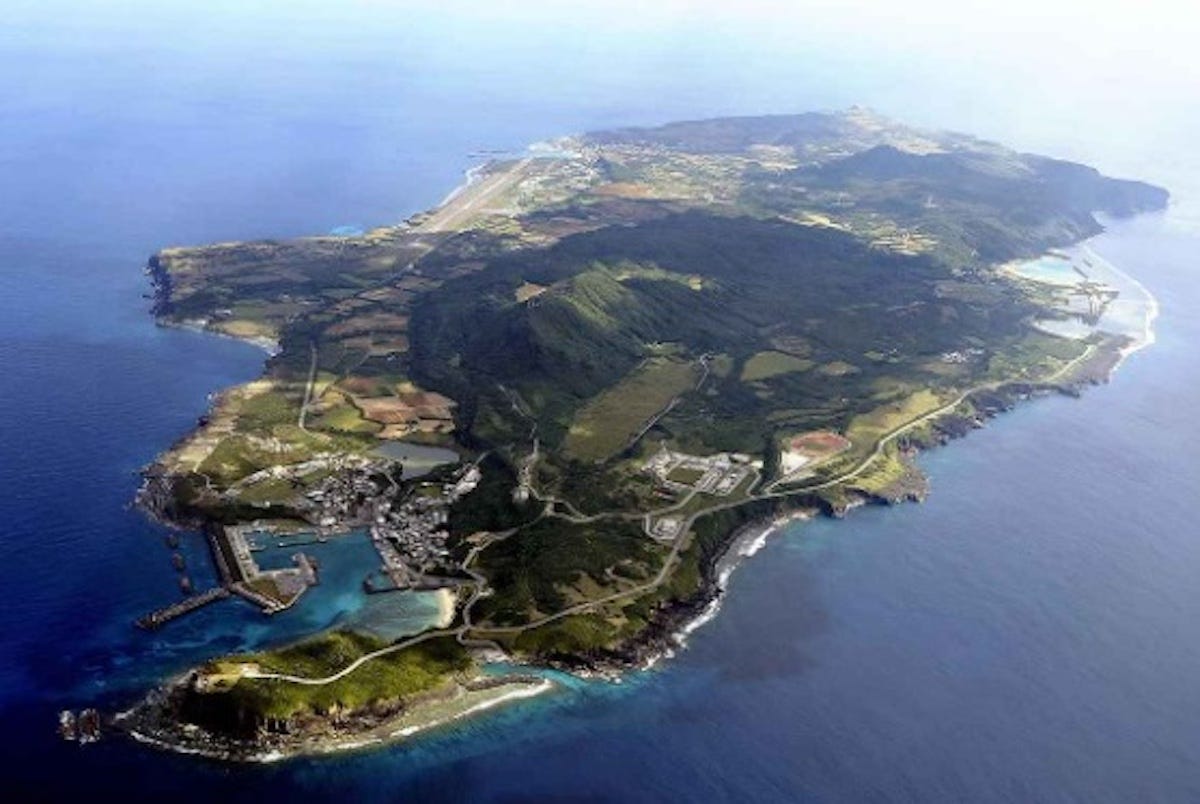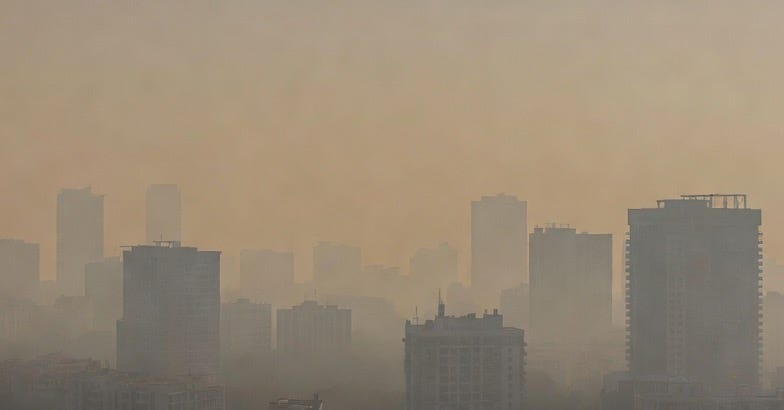10 Things Global News - 24th November 2025
Interesting and important news from around the world
Updated Ukraine Peace Plan Talks Narrow Differences
Ukraine Hits Russian Power Plant in Deep Strike
Israel Strikes Beirut, Killing Hezbollah Commander
G20 Pushes Ahead Despite US Boycott
China Defends Rare-Earth Export Controls at G20
Airlines Halt Venezuela Routes After FAA Warning
Japan Presses Ahead With Yonaguni Missile Plan
Nigeria Children Escape Mass Kidnapping
Delhi Protest Turns Violent Amid Toxic Smog
COP30 Deal Reached Amid Deep Divisions
On this day ….
On this day in 2015, Turkey’s downing of a Russian Su-24 near the Syrian border marked one of the most serious NATO–Russia confrontations of the decade. Ankara insisted the jet violated its airspace; Moscow denied this and accused Turkey of undermining its operations in Syria.
The incident triggered military, diplomatic, and economic retaliation, exposing how rapidly regional conflicts can escalate when major powers operate in close proximity. It also forced NATO allies to calibrate their responses carefully to avoid further escalation.
Did this episode prove how easily a single tactical decision can drag larger powers toward unintended confrontation?
The US and Ukraine said they made “meaningful progress” toward aligning positions on President Trump’s 28-point peace proposal after a full day of talks in Geneva. Officials said they produced an “updated and refined” framework, and Ukrainian representatives indicated the revisions better reflect their national interests. They highlighted improvements on security guarantees, long-term development and sovereignty, which had been key concerns.
However, the talks unfolded under pressure, as the final decisions will rest with Trump and President Zelensky. Rubio described the session as the most productive so far and said negotiators had narrowed outstanding issues, although further work is required. Earlier tensions surfaced when the US side accused Ukraine of leaking negative details, prompting a reset in tone.
Meanwhile, Trump publicly criticised Ukraine’s leadership for showing “zero gratitude,” while Zelensky said his delegation remains focused on workable solutions.
Sources: Axios, Al Jazeera
Ukraine launched one of its most far-reaching drone attacks of the war, striking the Shatura thermal power station around 120km east of Moscow and triggering a major fire. Regional officials said several drones fell on the site, damaging transformers and disrupting heat supply for thousands of residents as temperatures hovered around freezing. Backup power and mobile heating units were deployed as crews worked to restore services.
Meanwhile, Russian forces carried out extensive overnight attacks across Ukraine, launching 98 drones and multiple missiles against cities including Dnipro, Zaporizhzhia, Odesa and Sumy. Local authorities reported at least six people killed and dozens injured, with residential buildings, supermarkets and energy facilities hit. Ukraine’s emergency services said fires broke out at several sites as crews responded to widespread damage.
The strike on Shatura marks a notable escalation in Kyiv’s efforts to pressure Russia’s war economy, adding to months of attacks on refineries and industrial facilities.
Sources: The Independent, Euronews
Israel struck Beirut for the first time since June, saying it killed Hezbollah’s military chief of staff, Haytham Tabtabai, in a targeted strike on an apartment building in the capital’s southern suburbs. Lebanese authorities said five people were killed and 25 wounded, while Hezbollah confirmed Tabtabai’s death and warned that the attack risked a wider escalation.
However, Israel said the operation was aimed at preventing Hezbollah from rebuilding its capabilities after last year’s war. Officials said Tabtabai had led the group’s efforts to rearm, and the strike came amid intensified Israeli attacks across southern Lebanon. The Lebanese government condemned the strike and accused Israel of refusing to uphold ceasefire commitments.
Meanwhile, senior Hezbollah and Lebanese officials suggested the incident could trigger further clashes, even as Israel instructed residents near the northern border to maintain routines. The attack also followed comments from Israeli leaders vowing to prevent Hezbollah from restoring its military strength.
Sources: Associated Press, Times of India
The G20 summit in Johannesburg closed with an unusual show of unity, as leaders issued a joint declaration without US participation. South Africa said the gathering was a success despite Washington’s boycott, which followed Trump’s false claims about land seizures and objections to the summit’s DEI agenda. As a result, Ramaphosa announced consensus at the opening session and released the declaration without US input.

However, the US absence created protocol challenges, including the lack of a ceremonial handover. South Africa refused Washington’s request for a junior diplomat to accept the gavel, saying such a breach had never occurred. The transition will take place later between officials of equal rank. Meanwhile, European and other leaders used the sidelines to raise concerns about the US peace plan for Ukraine and to discuss wider geopolitical pressure points.
In contrast, the final declaration focused on climate risks, gender equality and debt burdens. Leaders from Europe, Latin America and Asia embraced the outcome, arguing it demonstrated that multilateralism can continue even without US endorsement.
Sources: NPR, FT
China used the G20 summit to justify strict export controls on minerals with military applications, arguing that sensitive resources must be “cautiously managed.” Premier Li Qiang defended measures that have disrupted access for European and Japanese manufacturers, as leaders from both regions pressed Beijing over tightening supply conditions. The G20’s joint declaration had already criticised “unilateral trade actions” that restrict access to critical minerals, underscoring how contested the issue has become.
However, Li also sought to ease concern by unveiling a mining initiative with nineteen nations, framed as promoting “mutually beneficial cooperation” and protecting the interests of developing countries. The plan follows years of confrontation in which Xi Jinping used China’s dominance in rare earth processing to blunt Donald Trump’s tariffs, a strategy that deepened trade tensions.
Negotiations between China and the United States on issuing “general licenses” to allow freer mineral flows are still under way, reflecting the complex mix of competition and interdependence shaping the sector.
Sources: Bloomberg, Mint News
International airlines suspended flights to Venezuela after the US Federal Aviation Administration warned of a worsening security environment and increased military activity around the country. Carriers including Avianca, TAP, LATAM, Gol, Caribbean Airlines and Iberia paused routes, with some cancellations beginning over the weekend. The FAA cited interference with navigation systems and Venezuelan military exercises, urging operators to exercise caution at all altitudes.
However, the advisory came as tensions rose between Washington and Nicolás Maduro’s government, with the US deploying the USS Gerald R. Ford carrier group and conducting lethal strikes on alleged drug-running boats. The agency said Venezuela possesses advanced aircraft and weapons capable of reaching civil aviation altitudes, even though it has not threatened commercial flights.
Meanwhile, Colombia’s aviation authority ordered airlines to report routes and provide advance notice of changes, and regional leaders commented on the wider implications. Turkish Airlines confirmed a temporary suspension, while Colombian President Gustavo Petro argued that blocking flights “means blocking people” and criticised external interference.
Sources: Bloomberg, Axios
Japan said it will proceed with deploying surface-to-air missiles on Yonaguni, its westernmost island, as tensions with China persist. Defence Minister Shinjiro Koizumi said the plan remains on schedule and argued the deployment would reduce the risk of an armed attack. His comments came during a visit to the base, 110 kilometres east of Taiwan, where he rejected claims the move would heighten regional tensions.
However, the decision follows a diplomatic row triggered by comments from Prime Minister Sanae Takaichi suggesting Japan could theoretically cooperate militarily if China attacked Taiwan, prompting rebukes and economic retaliation from Beijing. Tokyo is expanding its military presence across the southern island chain, including anti-ship missiles on Ishigaki and surveillance units on Miyako, reflecting concern over China’s growing military reach.
Meanwhile, Yonaguni’s strategic vulnerability has been highlighted by past Chinese drills and recent US exercises simulating a forward-operating base. Koizumi said Japan faces its most severe security environment since World War II and must reinforce deterrence.
Sources: Times of India, Bloomberg
Fifty of the more than 300 children kidnapped from a Catholic school in Niger state have escaped and reunited with their families, church officials said. However, around 253 pupils and 12 staff remain captive after gunmen raided St Mary’s school on Friday in one of the largest mass abductions recorded in Nigeria. Parents rushed to the school after hearing some children had fled, though many found no news of their own.
The attack came amid a wider surge in kidnappings that has forced northern states to shut dozens of schools. As a result, President Bola Tinubu ordered the hiring of 30,000 additional police officers and the redeployment of VIP security units to remote areas prone to attacks. He also confirmed that security forces separately rescued 38 people abducted during a church service in Kwara state.
Meanwhile, Pope Leo appealed for the immediate release of all those taken, describing his “deep sorrow” for the children and their families.
Sources: South China Morning Post, France 24
Delhi police detained 15 people after a protest over worsening air pollution turned tense near India Gate, where officers said some demonstrators used chilli spray during efforts to clear a blocked route. The scuffle left several policemen with eye irritation and required hospital treatment. However, officers stressed that the area had to be reopened because ambulances and medical staff were stuck behind the crowd.
The confrontation unfolded as the capital entered its eleventh consecutive day of severe smog, with multiple neighbourhoods recording Air Quality Index readings above 400. Meanwhile, authorities deployed water sprinklers and expanded measures aimed at curbing emissions. In contrast, protesters argued that official action remains inadequate and demanded an independent air regulator, transparent data and clearer health advisories.
As pollution levels continued to climb, surrounding NCR cities also reported severe conditions, underscoring the scale of the crisis.
Sources: Times of India, Money Control
Nearly 200 countries approved a COP30 deal in Brazil after fraught negotiations, offering a fragile sign of climate cooperation in a year marked by geopolitical strain.
Delegates agreed to triple adaptation finance for poorer nations, although the text avoided any reference to phasing out fossil fuels. This outcome reflected pressure from Saudi Arabia and others, who warned that language targeting their oil industries could collapse consensus. However, the final agreement still reaffirmed collective support for the aims of the Paris Agreement.
The talks were overshadowed by the absence of the United States, whose withdrawal from international climate cooperation forced the EU and developing nations to broker compromise on their own. Meanwhile, Indigenous protesters, late-night disputes and objections from Latin American nations exposed the summit’s deep divisions. Even so, the deal prevents a collapse of multilateral efforts and keeps discussions alive on a fossil-fuel transition roadmap to be drafted in the months ahead.
















Nice weekly summary :)
The On This Day snippet references an event that occurred on 24th November 2015